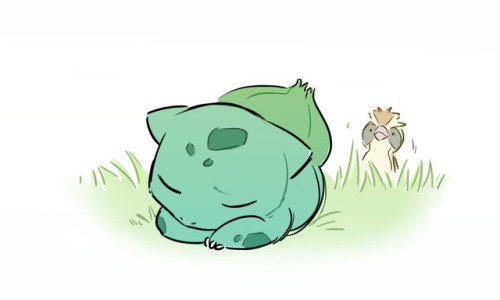My Boyfriend Just Woke Up, Mostly Still Asleep And Told Me “don’t Worry, It’s Getting Better”
My boyfriend just woke up, mostly still asleep and told me “don’t worry, it’s getting better” in a heavy, American accent, which is unusual for an Australian man.
“Why are you American?” I asked, to which I got:
“Sorry, it’s getting better” in a stereotypical posh English accent.
“Why are you English?” I asked, amused.
“What is he normally?” He managed to ask.
“He? You’re not anyone else, you’re you.”
“Ugh, me” was the last thing he said, in a right proper Aussie accent before he fell back into proper sleep.
More Posts from Moreneuroticthanjudicious and Others
Friendly reminder that you do not have to be on adventures and experience new things all the time. You might feel this pressure to do "cool" things every day just so you can tell other people what you did. But darling, you should live your life for yourself, not for the stories you might be able to tell. All you really need to do is be. Be in the moment. Be kind to yourself. Be there for yourself. Listen to your soul, listen to what it craves. Go on adventures and explore the world for the right reasons. Rest and recover when your body tells you to. I know that sometimes when you stand still, there can be a lot of uneasiness, because you think you have to go somewhere and do something amazing. But remember: It is absolutely okay to have days where all you do is breathe and take it easy. There is so much meaning in the slow days as well, my love.



I drew this a while ago for my husband when he was feeling down. If you’ve been having a hard time, I hope it gets better soon. You’re not alone. Sending pidgey hugs
(lights a cigarette) nobody even wants to play toys anymore. (puts the cigarette out on a play-dough ashtray) because of work.
*puts a flower in your hair when we go for a nature walk*

Poison list
While it's important to approach writing with creativity and imagination, it's crucial to prioritize responsible and ethical storytelling. That being said, if you're looking for information on poisons for the purpose of writing fiction, it's essential to handle the subject matter with care and accuracy. Here is a list of some common poisons that you can use in your stories:
Hemlock: Hemlock is a highly poisonous plant that has been used as a poison in various works of literature. It can cause paralysis and respiratory failure.
Arsenic: Arsenic is a toxic element that has been historically used as a poison. It can be lethal in high doses and can cause symptoms such as vomiting, abdominal pain, and organ failure.
Cyanide: Cyanide is a fast-acting poison that affects the body's ability to use oxygen. It can cause rapid loss of consciousness and cardiac arrest.
Nightshade: Nightshade plants, such as Belladonna or Deadly Nightshade, contain toxic compounds that can cause hallucinations, respiratory distress, blurred vision, dizziness, an increased heart rate, and even death when ingested.
Ricin: Ricin is a potent poison derived from the castor bean plant. It can cause organ failure and has been used as a plot device in various fictional works.
Strychnine: Strychnine is a highly toxic alkaloid that affects the nervous system, leading to muscle spasms, convulsions, and respiratory failure.
Snake Venom: Various snake venoms can be used in fiction as deadly poisons. Different snake species have different types of venom, each with its own effects on the body.
Digitalis: Digitalis, derived from the foxglove plant, contains cardiac glycosides. It has been historically used to treat heart conditions, but in high doses, it can be toxic. Overdosing on digitalis can cause irregular heart rhythms, nausea, vomiting, and visual disturbances.
Lead: Lead poisoning, often resulting from the ingestion or inhalation of lead-based substances, has been a concern throughout history. Lead is a heavy metal that can affect the nervous system, leading to symptoms such as abdominal pain, cognitive impairment, anemia, and developmental issues, particularly in children.
Mercury: Mercury is a toxic heavy metal that has been used in various forms throughout history. Ingesting or inhaling mercury vapors can lead to mercury poisoning, causing symptoms like neurological impairment, kidney damage, respiratory issues, and gastrointestinal problems.
Aconite: Also known as Wolfsbane or Monkshood, aconite is a highly toxic plant. Its roots and leaves contain aconitine alkaloids, which can affect the heart and nervous system. Ingesting aconite can lead to symptoms like numbness, tingling, paralysis, cardiac arrhythmias, and respiratory failure.
Thallium: Thallium is a toxic heavy metal that can cause severe poisoning. It has been used as a poison due to its tastelessness and ability to mimic other substances. Thallium poisoning can lead to symptoms like hair loss, neurological issues, gastrointestinal disturbances, and damage to the kidneys and liver.
When incorporating poisons into your writing, it is essential to research and accurately portray the effects and symptoms associated with them. Additionally, be mindful of the potential impact your writing may have on readers and the importance of providing appropriate context and warnings if necessary.
If you want to read more posts about writing, please click here and give me a follow!

missionary because i can kiss him while he fucks me
-
 iced-latte12 liked this · 2 weeks ago
iced-latte12 liked this · 2 weeks ago -
 redtouchesblack liked this · 3 weeks ago
redtouchesblack liked this · 3 weeks ago -
 jediqueen95 reblogged this · 3 weeks ago
jediqueen95 reblogged this · 3 weeks ago -
 jediqueen95 liked this · 3 weeks ago
jediqueen95 liked this · 3 weeks ago -
 forevermagik reblogged this · 3 weeks ago
forevermagik reblogged this · 3 weeks ago -
 sanybaby liked this · 3 weeks ago
sanybaby liked this · 3 weeks ago -
 aanok reblogged this · 3 weeks ago
aanok reblogged this · 3 weeks ago -
 aanok liked this · 3 weeks ago
aanok liked this · 3 weeks ago -
 walela-rose liked this · 3 weeks ago
walela-rose liked this · 3 weeks ago -
 isaspsp reblogged this · 3 weeks ago
isaspsp reblogged this · 3 weeks ago -
 kakeen reblogged this · 3 weeks ago
kakeen reblogged this · 3 weeks ago -
 psychotropicruby reblogged this · 4 weeks ago
psychotropicruby reblogged this · 4 weeks ago -
 amandarn reblogged this · 4 weeks ago
amandarn reblogged this · 4 weeks ago -
 amandarn liked this · 4 weeks ago
amandarn liked this · 4 weeks ago -
 noxernia reblogged this · 4 weeks ago
noxernia reblogged this · 4 weeks ago -
 uglybitchsandwitch liked this · 1 month ago
uglybitchsandwitch liked this · 1 month ago -
 kumacurry liked this · 1 month ago
kumacurry liked this · 1 month ago -
 kayd333 liked this · 1 month ago
kayd333 liked this · 1 month ago -
 untitledgirl5173 liked this · 1 month ago
untitledgirl5173 liked this · 1 month ago -
 singsongsappho reblogged this · 1 month ago
singsongsappho reblogged this · 1 month ago -
 singsongsappho liked this · 1 month ago
singsongsappho liked this · 1 month ago -
 screechingcalamity reblogged this · 1 month ago
screechingcalamity reblogged this · 1 month ago -
 sotiredwhy reblogged this · 1 month ago
sotiredwhy reblogged this · 1 month ago -
 trans-peridot reblogged this · 1 month ago
trans-peridot reblogged this · 1 month ago -
 fruitsnacksmp reblogged this · 1 month ago
fruitsnacksmp reblogged this · 1 month ago -
 yourunusalartist liked this · 1 month ago
yourunusalartist liked this · 1 month ago -
 flagellaburger liked this · 1 month ago
flagellaburger liked this · 1 month ago -
 wheelzyx reblogged this · 1 month ago
wheelzyx reblogged this · 1 month ago -
 minimistermini reblogged this · 1 month ago
minimistermini reblogged this · 1 month ago -
 starfirelily reblogged this · 1 month ago
starfirelily reblogged this · 1 month ago -
 ostensiblycreative reblogged this · 1 month ago
ostensiblycreative reblogged this · 1 month ago -
 p0patochisps reblogged this · 1 month ago
p0patochisps reblogged this · 1 month ago -
 dreamlogic liked this · 1 month ago
dreamlogic liked this · 1 month ago -
 brokenribs reblogged this · 1 month ago
brokenribs reblogged this · 1 month ago -
 roseatex liked this · 1 month ago
roseatex liked this · 1 month ago -
 mvshroombae liked this · 1 month ago
mvshroombae liked this · 1 month ago -
 hareofhrair-in-a-funny-hat liked this · 1 month ago
hareofhrair-in-a-funny-hat liked this · 1 month ago -
 tokushudesu reblogged this · 1 month ago
tokushudesu reblogged this · 1 month ago -
 kitanas-lastkiss liked this · 1 month ago
kitanas-lastkiss liked this · 1 month ago -
 jace-todd reblogged this · 1 month ago
jace-todd reblogged this · 1 month ago -
 dehydratedfluid reblogged this · 1 month ago
dehydratedfluid reblogged this · 1 month ago -
 calico-cows liked this · 1 month ago
calico-cows liked this · 1 month ago -
 dehydratedfluid liked this · 1 month ago
dehydratedfluid liked this · 1 month ago -
 the-onyx-wolf reblogged this · 1 month ago
the-onyx-wolf reblogged this · 1 month ago -
 doodle-blight liked this · 1 month ago
doodle-blight liked this · 1 month ago -
 kneecapwindchimes liked this · 1 month ago
kneecapwindchimes liked this · 1 month ago -
 popcorn-plots reblogged this · 1 month ago
popcorn-plots reblogged this · 1 month ago -
 porcelain-crane liked this · 1 month ago
porcelain-crane liked this · 1 month ago

keisha • 25 sideblog for @thejudiciousneurotic
437 posts




